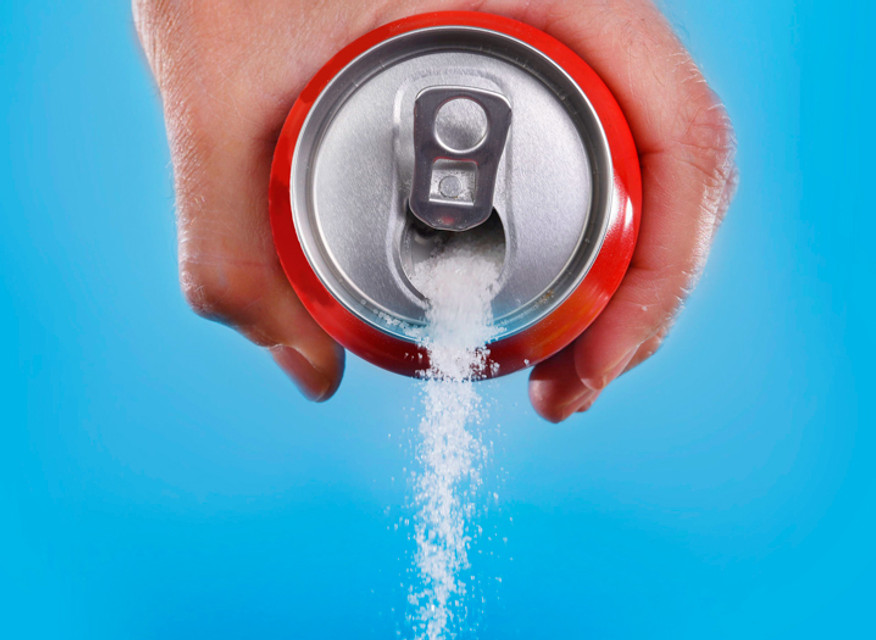Jan 23rd 2024
Sugar and Depression
 Gloria Swanson is known for playing the delusional Norma Desmond in the movie “Sunset Boulevard.” But in real life, she was a very sane and smart woman, and an early convert to the natural health movement. In the 1970s she toured the US helping her husband William Duffy to promote a book he authored that became a dietary classic, Sugar Blues.
Gloria Swanson is known for playing the delusional Norma Desmond in the movie “Sunset Boulevard.” But in real life, she was a very sane and smart woman, and an early convert to the natural health movement. In the 1970s she toured the US helping her husband William Duffy to promote a book he authored that became a dietary classic, Sugar Blues.
Sugar Blues is an indictment of refined sugar as a dangerous and addictive toxin with disastrous effects on the brain and mental health (both Linus Pauling and psychiatrist Thomas Szasz, who agreed with Duffy about sugar, are cited in the book).
Although Duffy’s book has had a significant impact on a health-conscious minority, sugar consumption continues to ravage the mental health of millions of Americans in minor and major ways. It has been linked with all kinds of mental distress, from depression to schizophrenia, while sugar and a high-glycemic diet have been linked specifically with depression.
As noted in a recent Newsclips article, the average American consumes a whopping 30 teaspoons of sugar daily. Although table sugar use has declined, sugar-laden ultraprocessed foods now comprise about 60% of the American diet and supply in the neighborhood of 90% of the added sugars we ingest, usually in the form of high fructose corn syrup.
In The Depression Epidemic, Raymond Francis explained how consuming sugar can cause depression:
All carbohydrates require specific nutrients (including vitamins B1, B2, B3, B5, B6 and magnesium) to properly metabolize in the body. Since refined sugars are devoid of such nutrients, they must be obtained from the body’s reserves, thus depleting our reserves and causing nutritional deficiency. . . . Deficiencies of B vitamins and magnesium are known to cause cellular malfunction and depression.
According to Raymond, Valium’s inventor later discovered that B vitamins could alleviate depression without Valium’s side effects and risk of addiction; however no US medical journal would publish these findings—they were making too much money advertising Valium! Finally published in an obscure foreign journal, this information is mostly unknown.
Sugar consumption can also lead to blood sugar spikes and crashes associated with depression and many of its symptoms, including crying spells, fatigue, agitation, and disturbed sleep. The Brain Bio Centre, a nutritionally-oriented mental health clinic in London, England, reports that “poor blood sugar balance is often the single-biggest factor in mood disorders amongst the people that seek our advice.” Since the brain runs on glucose (the form of sugar found in blood), the more uneven your blood sugar, the more uneven your mood will be.
Sugar consumption causes inflammation. Brain inflammation is found in about 30% of depressed patients, and in 45% of those classified as “treatment resistant.”
Although multiple factors are involved in depression, your health and feelings of well-being can only improve by getting refined sugar (and white flour) out of your life. If you still have problems regulating your blood sugar, try Beyond Health’s Glucose Control Formula, a synergistic combination of nutrients and herbs known to support healthy blood sugar balance. Other supporting products would include Beyond Health’s Multi, Vitamin C, Curcumin, Glutathione Formula and Berberine.
References:
- Sugar Blues. Accessed September 30, 2016.
- Peet M. International variations in the outcome of schizophrenia and the prevalence of depression in relation to national dietary practices: an ecological analysis. British Journal of Psychiatry. May 2004;184(5):404-408.
- Westover AN. A cross-national relationship between sugar consumption and major depression? Depression and Anxiety. October 2002;16(3):118-120.
- Gangwisch JE. High glycemic index diet as a risk factor for depression: analyses from the Women’s Health Initiative. American Journal of Clinical Nutrition, 2015;102:454-463.
- Beyond Health Staff. You may be eating more sugar than you think. Newsclips, April 11, 2016. See Newsclips Blog on beyondhealth.com.
- Francis R. The Depression Epidemic. Reprinted from Beyond Health News 2003 in the Article Archives at beyondhealth.com.
- Brain Bio Centre. Depression. Foodforthebrain.org. Accessed September 30, 2016.
- Storrs C. Depression’s dance with inflammation. Discover: Science for the Curious. July/August 2014.
 Fuel your life with the purest vitamins
Fuel your life with the purest vitamins
